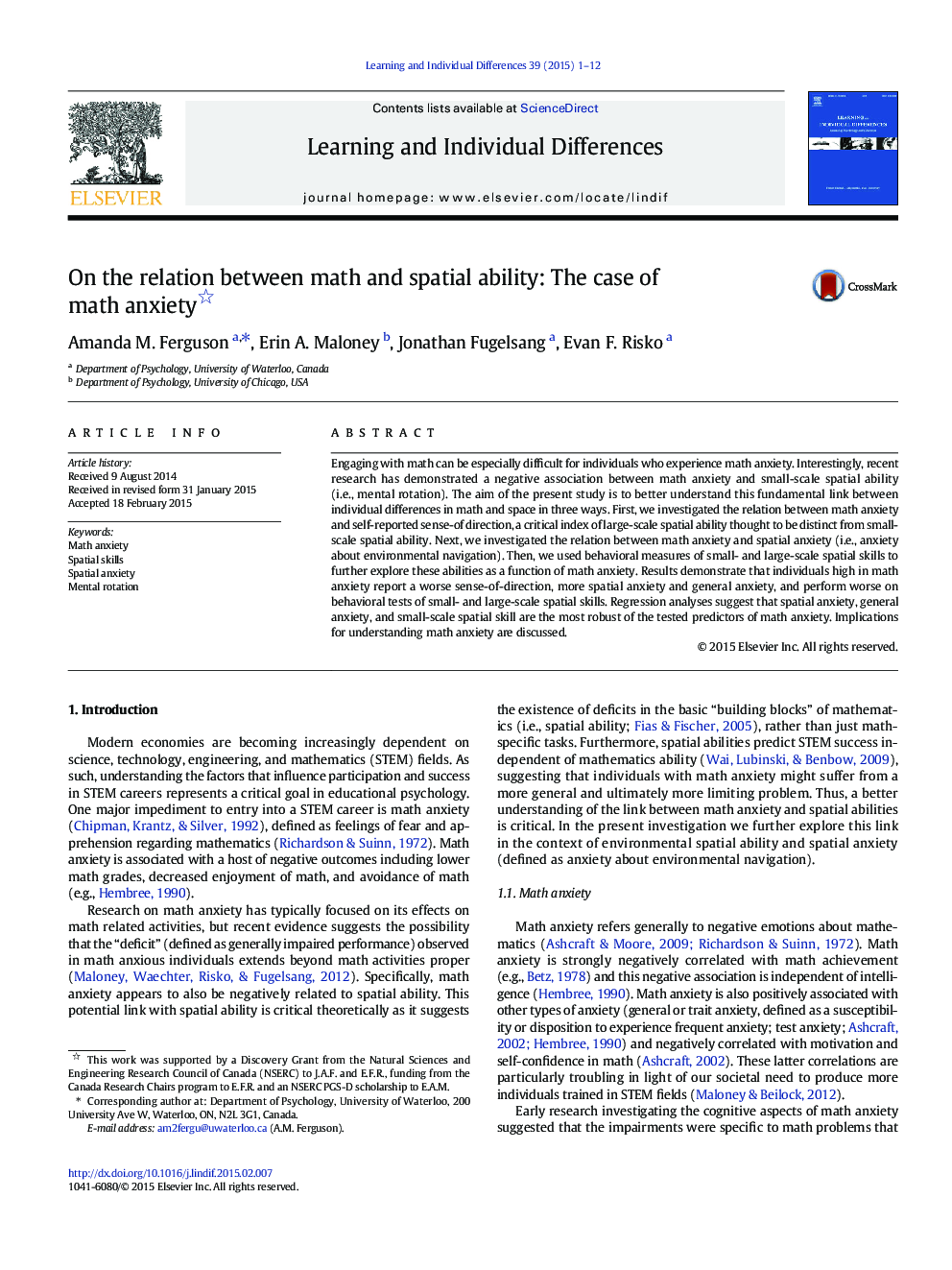| کد مقاله | کد نشریه | سال انتشار | مقاله انگلیسی | نسخه تمام متن |
|---|---|---|---|---|
| 364536 | 621074 | 2015 | 12 صفحه PDF | دانلود رایگان |
• Four studies demonstrate that individuals high in math anxiety report higher levels of spatial and general anxiety.
• Highly math anxious individuals perform worse on measures of small- and large-scale spatial skill.
• Spatial anxiety, general anxiety, and small-scale spatial skill best predicted math anxiety in these samples.
Engaging with math can be especially difficult for individuals who experience math anxiety. Interestingly, recent research has demonstrated a negative association between math anxiety and small-scale spatial ability (i.e., mental rotation). The aim of the present study is to better understand this fundamental link between individual differences in math and space in three ways. First, we investigated the relation between math anxiety and self-reported sense-of direction, a critical index of large-scale spatial ability thought to be distinct from small-scale spatial ability. Next, we investigated the relation between math anxiety and spatial anxiety (i.e., anxiety about environmental navigation). Then, we used behavioral measures of small- and large-scale spatial skills to further explore these abilities as a function of math anxiety. Results demonstrate that individuals high in math anxiety report a worse sense-of-direction, more spatial anxiety and general anxiety, and perform worse on behavioral tests of small- and large-scale spatial skills. Regression analyses suggest that spatial anxiety, general anxiety, and small-scale spatial skill are the most robust of the tested predictors of math anxiety. Implications for understanding math anxiety are discussed.
Journal: Learning and Individual Differences - Volume 39, April 2015, Pages 1–12
